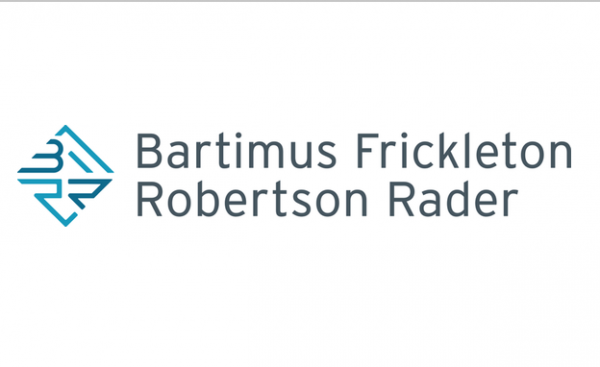
In recent years, the term “concussion” has become increasingly common in our daily lives. Whether it’s related to a hit on the football field, a fall at home, or a car accident, an estimated 3.8 million concussions happen every year.
Given the widespread occurrence of this condition, many people tend to perceive concussions as minor injuries or bumps on the head. Unfortunately, this is far from the truth.
Concussions are traumatic brain injuries that can result in serious and sometimes life-long consequences. Because of this, it’s crucial that concussions are taken seriously.
In this blog, we will discuss the complexities of concussions and the lasting impact of these injuries.
Understanding Concussions
Concussions are a type of traumatic brain injury caused by an impact to the head. Concussions can range in severity, from mild symptoms that resolve quickly to severe symptoms that impair your ability to function normally.
Basic Anatomy of Concussions
To better understand concussions, let’s first review the basic anatomy and role of the two most critical structures in these injuries—the skull and the brain.
The Skull
The skull is a hard barrier designed to protect the brain. It’s essential to our survival; however, when there is significant trauma to the head, the skull can contribute to brain damage.
The Brain
The brain floats inside the skull in a fluid called cerebrospinal fluid. This fluid provides essential cushioning between the brain and the skull, acting as a shock absorber to protect the brain from excessive movement.
Mechanics of Concussions
Concussions are caused by an external force contacting the head. The force can come from an object hitting the head (or the head hitting an object) or a rapid movement, rocking, and/or rotation of the head. When that happens the force on the head is transferred to the brain, causing injury.
When the brain moves in this sudden and forceful manner, it can lead to several types of damage, including:
- Physical damage to the brain tissue
- Stretching and straining of neurons, blood vessels, and nerves
- Chemical changes and neurotransmitter disruption
- Inflammation and swelling (causing increased pressure inside the skull)
The disruption of the delicate balance within the skull is the reason people experience the lasting fallout of concussions.
Common Causes of Concussions
Some of the most common causes of concussions include:
- Sports-related injuries
- Falls
- Motor vehicle accidents
- Violence
- Bicycling accidents
- Workplace injuries
- Any blow to the head
Symptoms of Concussions
Symptoms of concussions can look different depending on the injury and the brain’s response. It’s important to know that the effects of a concussion may not be immediately apparent. In some cases, it can take hours or even days for concussion symptoms to become noticeable.
Common symptoms of concussions include:
- Headache or pressure in the head
- Dizziness or balance problems
- Nausea or vomiting
- Vision changes
- Confusion or disorientation
- Sensitivity to light and noise
- Fatigue
- Problems with memory
- Problems with word finding and communication
- Depression
- Anxiety
- Dizziness
- Confusion
- Ringing in the ears
- Irritability
- Mood swings
These symptoms can play a role in not only the immediate effects of a brain injury, but also in the lasting fallout of concussions—which can linger for months.
Diagnosis
If you experience any type of head injury, it’s crucial to seek a medical evaluation. An early and accurate diagnosis will help ensure that you receive proper treatment and can help speed the recovery process.
In order to make an accurate diagnosis, your healthcare provider will usually complete a combination of the following steps:
- Collect your medical history
- Gather information about how the injury occurred
- Assess your symptoms
- Conduct a neurological examination
- Perform cognitive testing
- Complete neuroimaging to rule out other contributing causes
Treatment and Management
After a concussion diagnosis, your doctor may recommend the following steps to ease your symptoms and help your brain recover. These include:
Rest
Rest is one of the most important things you can do in the days following a concussion. Rest should involve limiting both physically strenuous activities and mental activities that require concentration (such as watching TV, doing work, reading, texting, or using a computer).

During this period, you should avoid any activities that make your symptoms worse. Your doctor will advise you on how long your rest period should be and help you gradually incorporate these activities back into your routine.
Work Modifications
Depending on the extent of your injury, your doctor may recommend that you work shorter hours, take breaks during the day, or have a smaller workload as you recover. If you are experiencing sensory sensitivities, they may also recommend that you work in a modified environment (such as a quiet or dimly lit room).
Medications
If you’re experiencing headaches in the days or weeks after your injury, your doctor may recommend that you take Tylenol or another pain reliever to manage these symptoms. It’s important to talk to your doctor before starting any medications, as some over-the-counter pain relievers (such as Advil) can increase the risk of bleeding.
Rehabilitation
If you have symptoms that impact your daily functioning, rehabilitation may be a necessary part of your treatment. Rehabilitation can target a variety of cognitive impairments, including:
- Memory problems
- Difficulty concentrating
- Difficulty with problem-solving tasks
- Difficulty with decision-making
- Emotional and behavioral changes
The Lasting Fallout of Concussions
Generally speaking, many concussion symptoms resolve within months of the injury. In other cases, concussion symptoms can last for months, years, or may be permanent in nature—this is known as post-concussion syndrome (PCS).
Post-concussion syndrome is when symptoms of a concussion persist beyond the expected recovery period. It is estimated that about 15% of people with a concussion will experience PCS. Individuals with PCS can suffer from the following symptoms long-term:
- Headaches
- Balance and coordination problems
- Fatigue
- Sleep disruptions
- Nausea
- Light or sound sensitivity
- Blurred or double vision
- Memory loss
- Difficulty concentrating
- Mental fogginess
- Irritability
- Mood swings
- Anxiety
Chronic Traumatic Encephalopathy
Chronic traumatic encephalopathy (CTE) is a progressive and fatal brain disease that is linked with repeated head injuries. Common symptoms of CTE include:
- Memory and thinking problems
- Personality changes
- Confusion
- Impulsive behavior and aggression
- Depression
- Suicidal thoughts
- Problems with walking and balance
Chronic traumatic encephalopathy does not develop immediately after a head injury—sometimes symptoms don’t appear until years or even decades after repeated head trauma. This degenerative brain disease is commonly associated with sports, but it has also been observed after blast injuries or other neurotrauma.
The Cost of a Concussion
For individuals who develop PCS or CTE, the cost of a concussion can be near impossible to determine when you take into account the medical bills, lost wages, decreased earning potential, ongoing rehabilitation expenses, emotional damages, and suffering from decreased quality of life.
If you’ve experienced a concussion due to the negligence of someone else, it’s crucial to work with a personal injury lawyer who understands the lasting fallout of concussions and their impact on your future. Only a qualified lawyer will be able to determine a fair value for the harm a brain injury can cause.
Concussion Prevention
Preventing concussions is the best way to avoid the risks associated with traumatic brain injuries. Taking the following steps can help you and your loved ones minimize the chances of experiencing a concussion:
Wear Proper Sports Gear
Whether you’re riding a bicycle or playing a sport, it’s essential to have a properly fitted helmet designed for the activity. Studies have shown that helmets decrease the risk of brain injury by 65 to 85%. Regardless of your age, it’s crucial to wear a helmet during activities that put you at increased risk of hitting your head.
Wear Your Seatbelt
It’s important to wear a seatbelt every time you get into a vehicle. Seatbelts help prevent deadly vehicle ejections and also significantly reduce the proportion of traumatic brain injuries that crash victims suffer.
Avoid Reckless Behavior
Any type of reckless activity can put yourself and others at an increased risk for a head injury. This includes reckless driving, not following safety rules, participating in extreme sports, and failing to wear proper safety equipment.
Educate Yourself and Others
Educating yourself and others about the dangers of concussions can help prevent injuries and further complications. Know the signs of a concussion and seek immediate medical treatment after a head injury.
Contact Bartimus Frickleton Robertson Rader for More on the Lasting Fallout of Concussions
If you or a loved one sustained a head injury, it’s important to know your rights. Bartimus Frickleton Robertson Rader is the trusted name for personal injury attorneys in Kansas City. We deliver answers, accountability, and justice for victims.
When we represent a client or a family, we devote the time, resources, and experience for the best possible result. Our attorneys are dedicated to investigating cases the right way—by answering every question and methodically working through each case.
To get in contact with an attorney today, use our virtual case tool or contact our office at (913) 266-2300 to speak with one of our team members.
The above is not intended to be legal advice. Each individual case is different and must be analyzed on its own set of facts and circumstances. If you believe you may have a case, it is critically important that you timely contact a lawyer to ensure your rights are protected.


